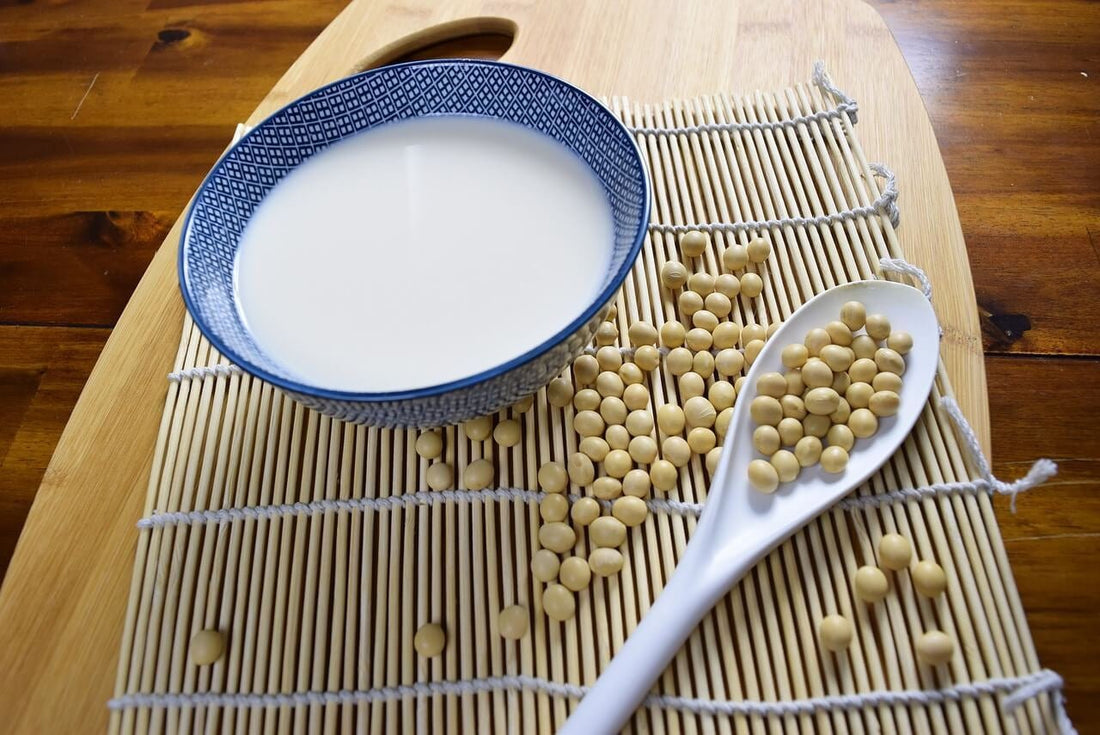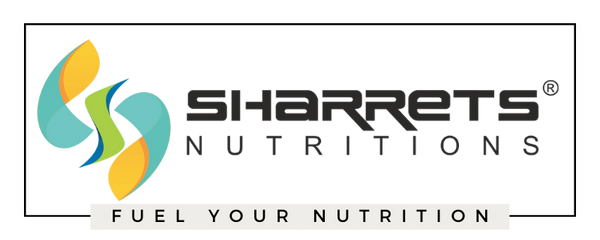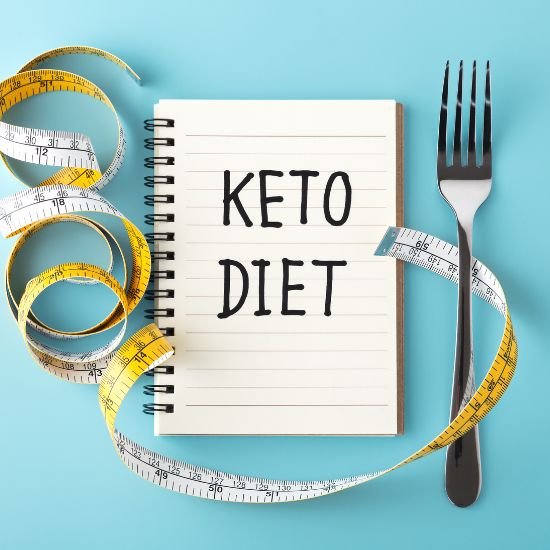
All about Soy protein - Soy and its health claims
Share
The purpose of this blog is to review the benefits of Soy Protein and to discuss what the populations are likely to benefit from intake of soy protein . It offers a broader Nutritional outlook on soy protein including information relevant to general health interspersed throughout.
What is Protein ?
About ½ of the dry weight of human body is made up of protein . Protein is an essential macro molecule without which our bodies would be unable to repair , regulate or protect themselves . The human body cannot store protein , so it must be supplied on a daily basis from the food we eat . Strict Vegetarians who do not consume animal products are at an increased risk of protein deficiency . Requirements are higher in case of malnourished individuals. Acute and chronic infections also increase protein requirements of the body. (1)
The Indian Council of Medical Research recommends 1.0g /kg/day as the optimal level of intake in terms of dietary protein for Indians (Table 1). Some sources of dietary protein are listed in Table 2.
ICMR Recommended Dietary Allowances for Proteins :
| Protein g/day | Protein g/day | Protein g/day | ||||
| Group | Men | 60 | Women | 50 | Preg.women | 50+15 |
| Lactation | 0-6 months | 50+25 | 6 -12 months | 50+18 | - | - |
| Infancy | 0-6 months | 2.05/kg | 6-12 months | 1.65/kg | ||
| Children | 1-3 years | 22 | 4-6 years | 30 | 7-9 years | 41 |
| Boys | 10-12 years | 54 | 13-15 years | 70 | 16-18 years | 78 |
| Girls | 10-12 years | 57 | 13-15 years | 65 | 16-18 years | 63 |
| Table 2: Food Sources of dietary protein | |
| Group Stuff | Protein % |
| Meat , Fish & Liver | 18-20 |
| Eggs | 14 |
| Milk Powder , Full Fat | 26 |
| Milk Powder , skimmed | 33 |
| Cheese | 18-20 |
| Pulses | 18-24 |
| Nuts and oilseeds | 18-26 |
| Soybean | 35-40 |
| Good Sources: | |
| Cereals and millets | 6-12 |
| Tender legumes , green peas , cow peas | 7-8 |
| Fair Sources : | |
| Potato | 2 |
| Green leafy vegetables | 2-6 |
What is Soy protein and What are the health benefits of Soy protein ?
For many centuries soybeans have played an integral part in Asian culture , both as a food and medicine . Soy protein is receiving increasing attention due to its potential role in the prevention and treatment of chronic diseases , most notably cancer and heart disease . In addition , it also has a potential role in preventing osteoporosis and renal disease . Given the ease with which soy protein can be incorporated into diet , it has a significant beneficial impact on health.
From a nutritional perspective , soy protein holds many more advantages over animal proteins above and beyond the fact that it is low in saturated fat and is cholesterol free . In comparison with some animal proteins , it has not been found to affect the function adversely.
Soy protein and health :
For healthy living , daily consumption of good quality protein is important . Legumes such as soy and oil seed protein sources prove to be beneficial replacement for animal protein in human diet. Findings at Laboratory of Human Nutrition , School of Science , Massachusetts Institute of Technology , show that well- processed soy protein isolates and soy protein concentrates can serve as the major , or even complete source of protein intake and that their value of protein is essentially equivalent to that of animal origin food proteins.
Soy proteins have also been found to be of good quality to be included in hypo caloric diets for weight reduction in obese individuals. Data also indicate that soy proteins are well tolerated and are safe functional food ingredients .(4)
Soy protein is low fat , cholesterol free source of healthy vegetable protein derived from soybeans . It is produced from raw soybeans by a multi step process that removes the lipid and indigestible components to concentrate the protein content and increase its bio availability. Depending on the particular steps used during processing , soy protein ingredients may take the form of isolated soy protein (ISP) , soy protein concentrate or soy flour . In addition , they may also contain other naturally occurring soy constituents , such as isoflavones , vitamins , minerals , fiber and saponins.
Isolated Soy Protein :
The most purified form of commercial soy protein preparations is Isolated soy protein or soy protein isolate (SPI) which contains 80-90% of soy protein extract. (5,7)
Soy Isoflavones : An Important Component of Soy Protein Isolate .
In addition to soy protein , soybeans are a natural rich source of compounds called isoflavanoic phytoestrogens or isoflavones . Isoflavones are believed to provide a number of health benefits because of their antioxidant and moderate estrogenic features, particularly in cardiovascular diseases , menopausal symptoms , osteoporosis and cancer . These health benefits of soy isoflavones provide a synergistic effect in combination with soy protein when taken together as components of isolated soy protein . The three major isoflavones in soybeans are genistein , daidzein and glycitein .
Isoflavone content of soy products are given in table 3. (8)
Table 3: Isoflavones content of soy Products.
| Soy Products | Total Isoflavones | Genistein | Daidzein |
| Roasted soybeans | 2661 µg /g | 1426 µg /g | 941µg /g |
| Soy Protein Isolate | 987 µg /g | 640 µg /g | 191µg /g |
| Tempeh | 865 µg /g | 422 µg /g | 405µg /g |
| Tofu | 532 µg /g | 245 µg /g | 238µg /g |
| Soy drink | 28 µg /g | 21µg /g | 7µg /g |
Isolated Soy Protein Vs Protein from other Sources :
Potential Advantages .The protein content of soybeans is about 40% which is highest as compared to other legumes .9
Besides Research shows that unlike other plant proteins soy contains all essential amino acids , and is a “complete” source of protein . Its Protein Digestibility Corrected Amino Acid Score (PDCAAS) , which is a measure of protein quality , is 1.0- the highest possible score .10
Vegetarians and health enthusiasts suggest that soy protein products are also a good alternative to meat , poultry and other animal based products . Enlisted below are the advantages offered by isolated soy protein supplements :
- Isolated soy protein supplement is cholesterol free and very low in saturated fat content when compared to animal proteins including the milk proteins , casein and whey .
- In addition , it causes a significant reduction in serum cholesterol and triglycerides , lowers the risk of atherosclerosis and coronary heart disease.
- Isolated soy protein supplement maintains a favorable blood glycemic control in diabetics and a favorable blood pressure control in hypertensives.
- It protects the kidney functions in patients of diabetic neuropathy by producing significant reduction in proteinuria.
- It helps in reducing the severity of menopausal symptoms .
- It maintains a better bone health by preventing osteoporosis and by avoiding hypercalciuria , which is often seen with animal proteins.
- It is a rich source of antioxidants , calcium , zinc and other nutrients.
- It reduces the risk of developing cancer such as breast cancer and prostate cancer .
High soy protein intake also helps in improving immunity , reducing susceptibility to infections particularly chronic obstructive pulmonary disease (COPD) patients and improving tolerability to antimicrobial drugs.
Clinical efficacy
Soy is one of the functional foods which provide high-quality essential nutrients as well as additional and unique health benefits. Strong evidence suggests that soy has a potentially important and effective role for populations worldwide in relation to heart disease , diabetes , hypertension , metabolic syndrome , osteoporosis , menopausal symptoms , respiratory disease , immunity and cancer.
Soy protein in cardiovascular diseases (soy protein heart disease):
In 1999, the Food and Drug Administration (FDA) approved a health claim related to soy protein and the reduced risk of heart disease . The FDA concluded , based on scientific evidence from more than 50 independent studies , that 25 grams of soy protein per day , as part of a diet low in saturated fat and cholesterol , reduces the risk of coronary heart disease . (11)
Furthermore , the beneficial effects of soy are proportionally greater in people with high blood cholesterol .(12)
The UK Joint Health Claims Initiative (JHCI) re-commend this by issuing a similar claim in 2002 . It stated - “ Importantly , the JHCI health benefits relates to soy protein that has retained its naturally occurring isoflavones - a marker for the retention of bioactives that are effective at delivering heart health benefits.’ (13)
The Japanese FOSHU ( Foods for special health use) authority and Chinese Health Food Authority also approve the claim that consumption of 25 grams of soy protein daily may be protective against heart disease. This clearly endorses the active role of soy protein in reducing heart disease risk . Table 4 illustrates the possible mechanisms for the effect of soy protein on decreasing cardiovascular disease risk .
Table 4 : Beneficial effects of Soy Protein on Decreasing Cardiovascular Disease Risk.
| Decrease plasma cholesterol |
| Increase bile acid excretion |
| Increase low density lipoprotein cholesterol (LDL) receptor activity . |
| Increase thyroxine and thyroid stimulating hormone. |
| Decrease cholesterol absorption. |
| Decrease susceptibility of LDL to oxidation . |
| Increase arterial compliance . |
| Protective estrogenic activity of soy isoflavones. |
Soy protein in Hyperlipidemia and coronary artery disease .
A meta-analysis of 38 controlled clinical studies (14) concluded that substituting soy protein for animal protein significantly lowered total cholesterol , LDL cholesterol and triglycerides . These effects were greater in individuals with higher baseline cholesterol values. Daily soy protein consumption resulted in a 9.3% decrease in total serum cholesterol , a 12.9% decrease in LDL cholesterol and a 10.5% decrease in triglycerides ( Table 5).(14)
Table 5 : Net Changes in Serum lipids and lipoprotein concentrations in Individuals consuming Soy Protein.
|
Index |
No. of Individuals |
No. of Individuals |
Change (mg/dl) |
95%CI |
% Change |
|
Total Cholesterol |
38 |
730 |
-23.2 |
-32.9 to -13.5 |
-9.3 |
|
LDL Cholesterol |
31 |
564 |
-21.7 |
-31.7 to -11.2 |
12.9 |
|
HDL Cholesterol |
30 |
551 |
+1.2 |
-3.1 to +5.4 |
+2.4 |
|
VLDL Cholesterol |
20 |
255 |
-0.4 |
-4.6 to +3.9 |
-2.6 |
|
Triglyceride |
30 |
628 |
-13.3 |
-25.7 to -0.3 |
-10.5 |
It is important to note that consumption of soy protein does not appear to have a hypocholesterolemic effect in adults with low or normal cholesterol levels , so there is no risk of dangerously low cholesterol levels. (15)
Other investigators who studied the effect of soy protein as part of a hypocaloric diet found significantly significantly lower total LDL cholesterol compared with conventional hypocaloric diet . (16,17 )
In a recent study , postmenopausal women on a diet low in saturated fat and cholesterol consumed 40g/day of soy protein with either 56 or 90 mg of soy isoflavones daily or casein for 6 months . Both soy groups had significantly better blood lipid profiles (average change from baseline, 8.2% decrease in non-HDL cholesterol and a 4.4% increase in HDL cholesterol) than the casein group. However , no differences in lipids were seen between the 2 isoflavone levels. (18)
In another study , HDL , significantly increased by 7% from baseline with consumption of 32g soy protein in both women and men with hypercholesterolemia. (19)
Crouse et al 20 reported reductions of 4% and 6% in total and LDL cholesterol , respectively in hypercholesterolemic individuals consuming 25g soy protein with isoflavones as part of a diet low in saturated fat and cholesterol.
A 9-week human study comparing the effects of soy protein (25g/day) containing varying levels of isoflavones with those of casein found that consumption of soy protein with higher isoflavone levels resulted in significantly lower total and LDL cholesterol values than those of the casein group. In addition , individuals with very high LDL cholesterol levels experienced significant decreases in total and LDL cholesterol with 37 mg /day of isoflavones . To evaluate the threshold quantity of dietary soy protein needed to reduce cholesterol , a dose-response study in hypercholesterolemic men on NCEP ( National cholesterol Education Program ) Step I diet used 20,30,40 or 50g/day of soy protein compared with casein . After 6 weeks , all levels of soy consumption led to significantly greater reductions in non-HDL cholesterol than did the casein , with the higher levels being more effective .(21)
An earlier study by Bakhit et al (22) showed cholesterol lowering effect with as little as 25g/day of isolated soy protein in hyper-cholesterolemic but not normo- cholesterolemic men. Thus , 20 to 50 g soy protein /day is shown to improve blood lipid profile in hypercholesterolemic persons.
Soy Protein in Hypertension - soy protein good for hypertension .
Research suggests that the consumption of soy protein with naturally occurring isoflavones may be linked to lower blood pressure . The mechanism by which soy helps to reduce blood pressure is being investigated ; however studies have indicated that it may improve vascular reactivity . Research has suggested that specific peptides in soy may inhibit the angiotensin-converting enzyme (ACE) in hypertensive , but not normotensive rats. (23)
Findings of randomized , double-blind, controlled trial suggest that increased intake of soybean protein may play an important role in preventing and treating hypertension .
It was concluded that soybean protein supplementation resulted in a significant reduction in systolic and diastolic blood pressure . (24)
The effects of soybean supplementation on blood pressure are summarized in Table 6.
Table 6: Effects of Soybean Protein Supplementation on Blood Pressure.
|
Author |
No. of Participants |
Duration of study |
Intervention |
Control |
Results |
|
Burke et al. 2001 (25) |
36 Hypertensive men and women ≥ 20 y age |
8 Weeks |
Protein intake , 25% Kcal (12.5% from Soy Protein) |
Protein intake , 12.5% K cal |
Net changes in mean 24-h systolic blood pressure were -5.9 mm Hg (p=0.001) and -2.6mmHg (p=0.006), respectively. |
|
He et al. 2005 (24) |
302 hypertensive men and women 35-64 years of age |
12 Weeks |
Isolated soy protein , 40g /day |
Complex carbohydrate 40 g /day |
Net changes in systolic blood pressure and diastolic blood pressure were -4.31 mm Hg ( p<0.001) and -2.76 mm Hg (p<0.001), respectively . |
Soy Protein in Respiratory diseases - Chronic obstructive Pulmonary disease (COPD)
The relationship between soy consumption , COPD risk and the prevalence of respiratory symptoms was shown in a case control study conducted in Japan . A total of 278 eligible patients (244 men and 34 women) , aged 50-75 years with COPD diagnosed within the past four years , were referred by respiratory physicians , while Three fourty controls (Two seventy two men & Sixty Eight women) were recruited from the community . It was observed that total soy consumption was positively correlated with observed lung function measures. The mean soy intake was significantly higher among controls (59,98, SD 50.23 g/day) than among cases (44.84, SD 28.5g/day). A significant reduction in COPD risk was evident for highest versus lowest quartile of daily intake of total soybean products . Similar decreases in Chronic obstructive Pulmonary disease (COPD)
risk were associated with frequent and higher consumption of soy foods such as bean sprouts and tofu , whereas respiratory symptoms were inversely associated with high intake of soy foods , especially for breathlessness. (26)
These findings were consistent with a previous cohort study in Singapore which reported that soy foods may reduce the development of chronic respiratory symptoms , especially productive cough. (27). It has been suggested that flavonoids from soy foods act as anti inflammatory agents in the lungs , and protect against tobacco carcinogens in smokers. (27)
Soy protein in asthma
Dietary intake of soy isoflavone genistein is associated with reduced severity of asthma . A study was conducted on evaluating soy isoflavone dietary supplementation on indices of eosinophilic inflammation in asthma patients . It was concluded that at physiologically relevant concentrations , genistein inhibits eosinophil leukotriene C(4) (LTC4) synthesis in vitro , probably by blocking p38 and mitogen activated protein kinase-activated protein-2 (MAPKAP-2) dependent activation of 5-lipoxygenase (5-LO) and hence reduces eosinophil LTC(4) synthesis and eosinophilic airway inflammation . These results support a potential role for sor isoflavones in the treatment of asthma. (28)
Soy protein in tuberculosis
Soy may be beneficial in tuberculosis when taken with standard medications. Studies have shown that soy may improve the process of detoxification , have positive effects on the liver , reduce cell damage , and decrease inflammation . Therefore , soy supplements may allow patients to safely take higher doses of antimicrobial drugs that are used to treat tuberculosis . Thus , soy-based food helps to increase the tolerability to antimicrobial agents. (29)
Soy Protein in osteoporosis
Soy protein and osteoporosis - Factors affecting urinary calcium excretion play a critical role in determining calcium balance and bone mineral density . The hypercalciuric effect of protein has been proposed as one of the factors contributing to high rates of osteoporosis . Studies indicate , however , that not all proteins are similar in this respect , and that in comparison with animal proteins , soy protein causes much less calcium to be excreted in urine .(30). This is likely as a result of the somewhat lower sulfur amino acid content of soy protein . Parenthetically , the isoflavones in soybeans may also directly inhibit bone resorption . (31) Thus , soy protein may work in several important ways to aid in bone health.
Soy protein in Menopause - soy protein for menopause symptoms I Is soy protein good for menopause ?
Recent interventional studies indicate that postmenopausal hormone therapy is associated with an increased risk of cardiovascular mortality and breast cancer.
Isoflavones , a plant estrogens class have structural similarities to estradiol . Hence isoflavones exert beneficial estrogenic health effects in posmenopausal women with fewer adverse effects.
Study concluded that high dose soy isoflavones are especially associated with improved Quality of life (QoL) among women who have become menopausal recently .
In this group of women who are looking for relief from menopausal symptoms- the use of isoflavones as an alternative to estrogen therapy , may be potentially useful and seemingly safe. (37)
Soy Protein in Diabetes - Is soy protein good for diabetes ?
The type of protein consumed affects the changes in renal blood flow , glomerular resistance and renal function in these diabetic patients. Several studies have reported the beneficial effects of soy consumption on insulin resistance and glycemic control .
Genistein and isolated soy protein supplements seem to be beneficial for correcting hyperglycemia , soy protein reduces hyperlipidemia and hyperinsulinemia . It is believed that consuming soy protein could very well reduce insulin resistance , renal damage and fatty liver , thus improving the quality of life of diabetic patients .
Soy Protein in Metabolic syndrome
Chronic diseases such as metabolic syndrome , obesity and diabetes are the result of interaction between genetic and environmental factors , especially diet . Soy , as a component of the diet , has received considerable attention in this regard . Soy consumption could reduce the risk of metabolic syndrome through its beneficial components including complex carbohydrates , unsaturated fatty acids , vegetable protein , soluble fiber , oligosaccharides , vitamins , minerals , inositol-derived substances like lipintol , pinitol and phytoestrogens , particularly the isoflavones genistein , daidzein , and glycitein .( 39,40)
Soy Protein in obesity - role of dietary soy protein in obesity.
Protein intake has an important role in the prevention of obesity due to its satiating and thermogenic effects . A 12 week clinical trial by Anderson et al (41) showed beneficial effects of soy meal replacement as part of a low energy diet for weight loss. Isoflavones , saponin and phospholipid content of soy have beneficial effects on weight loss. (42)
Soy protein also affects lipid absorption , insulin resistance , fatty acid metabolism and other hormonal , cellular or molecular changes associated with adiposity. (43)
An in vivo study has suggested that soy protein may reduce lipogenesis in the liver via decreasing the concentrations of triglycerides in plasma and liver .(44) Other possible mechanisms by which soy consumption might exert its beneficial effects in body weight management is stimulating adiponectin , which has an important role in adipocyte differentiation and secretory function and in enhancing insulin sensitivity . (45)
Studies shows that use of a vegetable soy protein supplement in a weight loss program , which induced moderate weight loss , was associated with a significant reduction in blood lipids , whereas a control low calorie diet or milk based formula was not . (16)
Soy Protein in Cancer ( Soy protein isolate and cancer) Is soy protein good for cancer patients ?
Soy protein and its component isoflavone genistein inhibit the progression and development of prostate cancer.
Swami S et al reveals a novel pathway for the actions of genistein , namely the inhibition of synthesis and biological actions of prostaglandins (PGs) , which are known stimulators of prostate cancer growth.
Further , the growth stimulatory effects of exogenous and endogenous prostaglandins derived from precursor arachidonic acid were attenuated by genistein .
Studies show that soy consumption may be beneficial in men at high risk of progressing to advanced prostate cancer as a result of effects on endogenous estrogen metabolism . (46)
Also consumption of soy and its constituent isoflavones are shown to be inversely related to the risk of breast cancer development.
Soy Protein in Immunity
Soy constituent Genistein suppresses antigen-specific immune response in vivo and lymphocyte proliferation response in vitro. It enhances the cytotoxic response mediated by NK ( Natural Killer) and cytotoxic T cells . Thus , the effect of genistein Isoflavone on immunity is immune cell-dependent . The characteristic feature of genistein is its anti-inflammatory effect , and this effect has been demonstrated in animal models.
An in vivo study has shown that administration of daidzein also increases the phagocytic response of peritoneal macrophages and the thymus weight in a dose-dependent manner.(47)
Miyake , et al. conducted a cross study on the relationship between dietary soy products with isoflavones and the prevalence of allergic rhinitis . (48)
The study findings indicate that a high intake of soy isoflavones is associated with reduced prevalence of allergic rhinitis.
Soy Protein Renal insufficiency ( soy protein and kidney disease)
Recent research not only confirms the adequate safety of soy protein in renal insufficiency but also indicates that even a moderate incorporation of soy protein into the diet may have significant renal benefits for those at risk for renal problems . (49)
Soy protein powder clearly exerts different effects on kidney function parameters compared with animal protein . These effects of soy protein may be related to the presence of one or more of these ; soy isoflavones ; favoroble amino acid profile ; lipid lowering effects ; antioxidant properties ; anti inflammatory effects . (50-52)
Therefore Soy may be beneficial for treatment in patients with renal problems or for prevention in healthy persons at risk of renal problems. (53)
Soy protein in Hepatic insufficiency .
Liver is the major site of protein synthesis , amino acid metabolism and detoxification of nitrogenous waste products . Excessive protein intake in hepatic insufficiency should be avoided as it is associated with increased production of ammonia , potentially precipitating hepatic encephalopathy. A moderate reduction in protein intake is therefore recommended to prevent or reduce the clinical signs of hepatic encephalopathy .
Furthermore, the type of protein fed can influence this risk . Poor quality proteins and meat based proteins have been suggested to exacerbate hepatic encephalopathy . Conversely , vegetable proteins such as soy protein isolate are good quality proteins of high biological value containing lower concentrations of nitrogenous compounds. Hence , they can be used as a replacement or substitute for the regular dietary protein in hepatic impairment cases , while maintaining a strict restriction on the total daily protein intake . (55)
Soy Isoflavones- Effect on Male fertility.
In active young men , regular soy protein consumption was not found to produce any effect on testosterone concentrations , rather it provides antioxidant benefits. A study found that in active young adult males , a 4 week intake of high isoflavone soy protein (41.5 g/70 kg body weight per day) had no effect on plasma testosterone values. However , soy protein intake did elevate plasma total antioxidant status ( a measure of free radical scavenging action). On the contrary , intake of whey protein or a placebo (cake mix) had no effect on plasma total antioxidant status . (56) Few other studies in men consuming soyfoods or supplements containing 40-70 mg /day of soy isoflavones showed minor insignificant effects on plasma hormones or semen quality . These data do not support concern about the effects of soy protein on reproductive hormones and semen quality. (57)
Lactose free - Approximately 75% of all African Americans and American Indians as well as 90% of Asian Americans are Lactose intolerant. Isolated Soy protein is a nutritionally rich lactose free option for individuals who have trouble digesting milk and dairy products. (58)
Buy now best soy protein isolate online in India.









